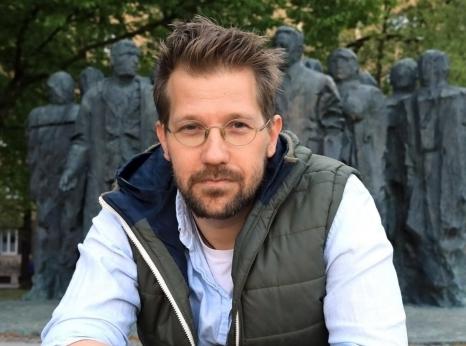Slovenia: Protesters Forced To Pay Costs Of Policing

On 9 March 2022, Jaša Jenull, an activist and theatre director, received a ‘call for payment before filing a lawsuit’ from Slovenia’s State Attorney for the amount of 34,340.56 Euros to cover for the costs for policing a protest. The costs relate to a protest held on 19 June 2020, when Jaša Jenull and several dozen others sat on the ground on Republic Square in Ljubljana to read the Constitution aloud in protest against restrictions on the rights to freedom of expression and peaceful assembly imposed in the context of the Covid-19 pandemic. According to information widely reported, police forcibly removed protesters who did not leave the square voluntarily. The public reading of the Constitution was then followed by a protest. To date, Jaša Jenull has three open proceedings for costs associated with the policing of protests. The overall amount claimed by the authorities amounts to over 40,000 Euros. The financial claims against Jaša Jenull for reimbursement of the costs for policing is not an isolated case. According to official data provided by Slovenian authorities during a meeting of the Parliamentary Committee on Internal Affairs and the Committee on Justice on 4 October 2021, the authorities have claimed 972,166 Euros in civil lawsuits to be filed against protesters. To date, according to information provided by the State Attorney’s Office to Amnesty International, 28 claims for policing costs are being processed for the amount of 269,778.48 Euros.
The authorities have justified their claims to reimburse the costs of policing costs on the basis that the protests were held without notifying the authorities. According to the police, the lack of notification required additional resources in order to ensure public safety. Invoking a lack of notification to impose financial sanctions to claim back the costs of policing is an illegitimate interference with the right to peaceful assembly and violates international and regional human rights standards. Moreover, it is of further concern that it appears that some individuals with more public visibility, like Jaša Jenull who has repeatedly rejected claims that he was the organizer of the protests, have been particularly targeted by the authorities in an attempt to amplify the intimidatory message to other protestors.
The right to freedom of peaceful assembly is protected under various international human rights treaties to which Slovenia is a state party, including the International Covenant on Civil and Political Rights and the European Convention of Human Rights. States have an obligation to actively facilitate the right to peaceful assembly, which requires providing adequate services that should not be expected to be covered by the organisers or the participants. Requirements for participants or organisers either to arrange or to contribute towards the costs of policing or security, medical assistance or cleaning are a barrier to the realization of this right and could also create a significant deterrent for those wishing to exercise their rights.
The duty to facilitate peaceful protests also applies in cases of spontaneous assemblies. Even if domestic legislation establishes the requirement for organizers to notify authorities in advance of an assembly, when people decide spontaneously to take their views to the streets police should facilitate such assemblies as long as they are peaceful. Failure to notify the authorities of the intention to assemble must not render an otherwise peaceful assembly unlawful nor should be used as a justification for its dispersal.
Amnesty International has been concerned over numerous measures taken by the Slovenian authorities in the last years to curb people’s participation in protests, including through the application of fines and intimidation, closing public spaces for protests and imposing a blanket ban on all protests for several months in the context of Covid-19. For example, just Jaša Jenull was issued over 10,000 euros of fines for minor offences related to protests (this is in addition to the claims for policing the protests in over 40,000 euros). Since May 2020 police conducted random identity checks, detained and fined peaceful protesters simply for carrying anti-government placards and subjected them to legal proceedings. In November 2020, the authorities considerably increased fines for organizing public gatherings in defiance of a blanket ban, which was in place between October 2020 until April 2021, except for a 12-day hiatus, when protests of maximum 10 persons were allowed. In July 2021, the Constitutional Court ruled that the government’s decisions to prohibit public gatherings and limit the number of protesters were unconstitutional and represented a disproportionate infringement of human rights.